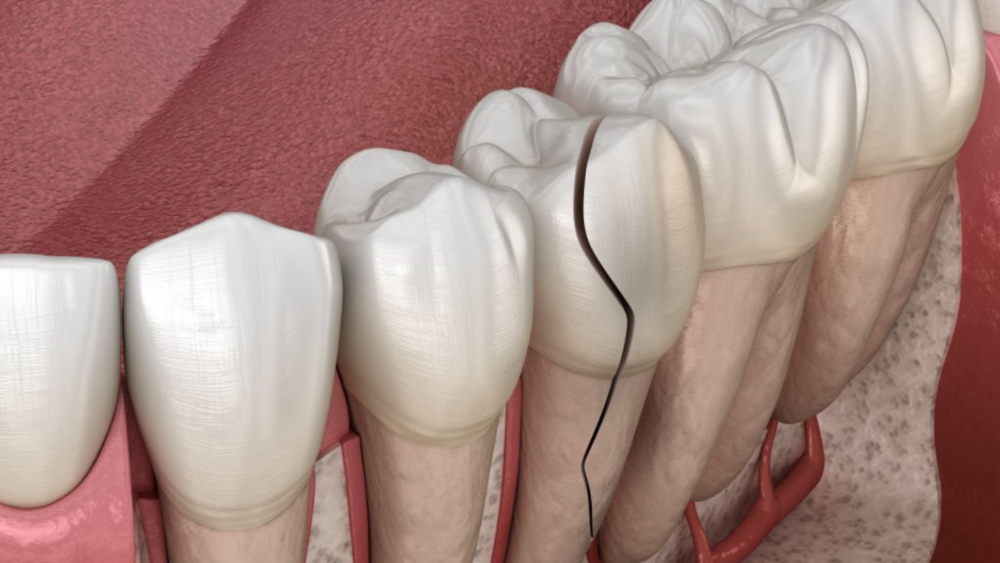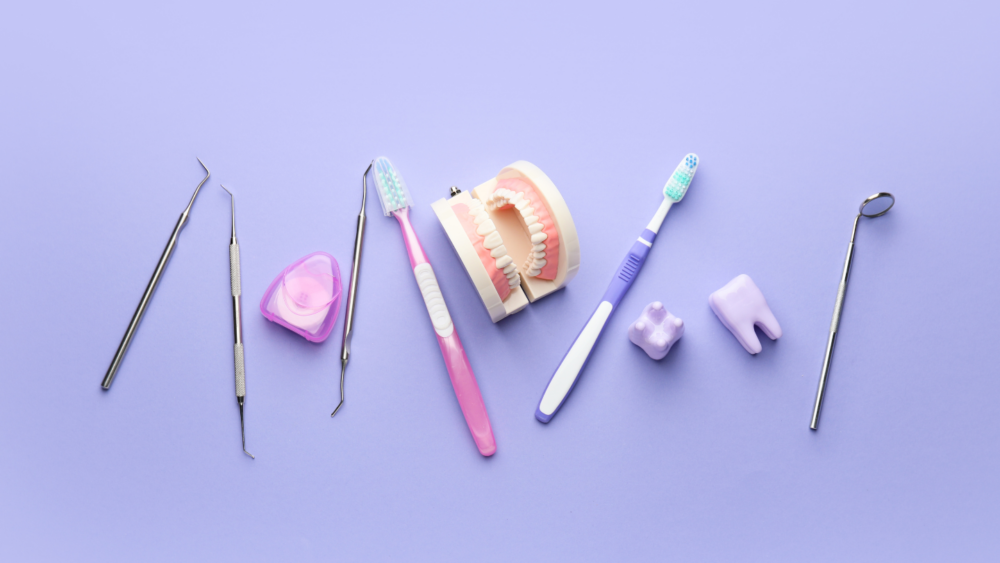
How To Fix A Cracked Tooth
May 22, 2023
How To Improve Oral Health
May 22, 2023You may know that pain in a tooth is not normal, but do you know whether you have a cavity? Find out what to look for to know when you need to make an appointment with a dentist. And anytime that you have doubt whether you have a cavity visit your dentist anyway. You might have pain from another problem that they can help you with, such as needing a root canal or a nightguard to prevent tooth grinding.
What Is a Cavity and Why Does It Hurt?
A cavity results from dental decay from plaque in your mouth, and bacteria run amok. Brushing your teeth and flossing between them prevents this damage by cleaning food and sugar out from inside your mouth.
Some of the starchy or sugary foods may stick to your tooth surfaces when you eat. If you skip brushing your teeth, you develop plaque on your teeth. This plaque contains bacteria that eat sugar in the mouth and produce acid. This acid wears away at the tooth enamel and dentin, causing damage from decay.
If the decay breaks through the dentin layer to the pulp inside the root canals, you may require a root canal treatment to fix the damage.
Cavities hurt because they create openings in the tooth that expose the sensitive internal structures to food, air, and temperature changes. However, you may not have pain or only occasional pain during the early stages of decay.
How Do You Know If You Have a Cavity: Signs and Symptoms
If you have a cavity, one of the first signs of a problem could be pain in a tooth, but other symptoms can also indicate that you need to make a trip to your dentist for an examination of your teeth. If you have any of the following problems, contact your dentist.
Tooth Sensitivity
Most people don’t naturally have dental sensitivity to temperature changes or sugary foods. Tooth sensitivity feels like mild to sharp pain when you have triggering substances. If you suddenly develop sensitivity, don’t just swear off ice cream for the rest of your life. Talk to your dentist to see if you have a cavity that needs treatment.
Dental Stain on a Single Tooth
Staining on all your teeth often happens from drinking coffee, tea, or sodas, which discolor your enamel. However, if only one of your teeth has spotting or stains, you may have a cavity. Stains from dental decay often start as whiter areas on the tooth’s surface. However, they can also turn brown or black over time. Color changes in a tooth could be signs of decay and not just a cosmetic problem. After your dentist fills the tooth, they can also help you fix any discoloration with porcelain veneers.
Holes on the Tooth
Not all cavities produce visible holes in your tooth. You may also feel a hole in a tooth by running your tongue over the surface of your teeth. Visible or tactile holes in your teeth show current decay in the tooth that needs a dentist to repair.
However, don’t rely on seeing or feeling holes in your teeth to determine if you need to visit the dentist. Sometimes, cavities develop between teeth or at the gum line, where you cannot see or feel them. They will still produce other symptoms of cavities, such as sensitivity and pain.
Dental Pain
The most significant indicator of a cavity is pain. People can experience pain in different ways when they have a cavity. You may have a constant toothache that feels dull. Pain may increase when you bite down on something.
Any new dental pain warrants a visit to the dentist as soon as possible. You may have a cavity. However, other problems such as sinus pressure, gum disease, a cracked tooth, or teeth grinding can cause pain in the mouth. Getting dental pain checked will ensure you find out the cause and get treatment as soon as possible.
How Your Dentist Treats a Cavity
Dental cavities permanently change the teeth they affect. Your dentin and enamel never grow back. Without treatment, decay that causes a cavity could lead to an infection that may require tooth extraction.
When your dentist treats a cavity, they have two goals. First, they need to clean bacteria out of the hole. Second, they need to seal up the opening in the tooth. A dental filling does both.
If the decay reaches past the dentin layer to the pulp, the dentist will need to do a root canal on your tooth. The process for a root canal is similar to a filling but treats the inside of the tooth. Both root canals and fillings only cause minor discomfort for a few days after treatment as your body heals.
Preventing Cavities
You can prevent cavities from developing in your teeth and the pain that comes with them. Start with regular brushing and flossing twice daily. By cleaning your teeth of any stuck-on food, you help prevent plaque from building up.
Dental cleanings twice a year are also important to prevent cavities. When you have your teeth cleaned, the hygienist removes plaque and tartar. The latter develops when plaque stays on your teeth and hardens.
Your toothbrush cannot remove tartar from your teeth. Only a professional dental cleaning can get rid of tartar that can harbor decay-causing bacteria.
Dental checkups are another important aspect of preventing cavities and treating them early. If a dentist spots a cavity before it causes you pain, you can get it filled before it damages your tooth’s pulp or causes an infection.
Make sure to watch what you drink and eat, too. Sticky, sugary foods promote cavities more than non-sugary foods because the sticky foods can stay on your teeth longer and feed decay-causing bacteria. Enjoy sweets and sticky foods, such as dried fruit, in moderation, and brush and floss thoroughly daily.
Get Help for Cavities and All Your Dental Needs at Langley Dental Care
If you have pain or new sensitivity in a tooth, call us at Langley Dental Care for an appointment. Whether you have a cavity or another dental issue causing your symptoms, we can help. We treat all our patients like our family. Come see us for caring, expert dental treatments at Charlotte’s top dentist.



